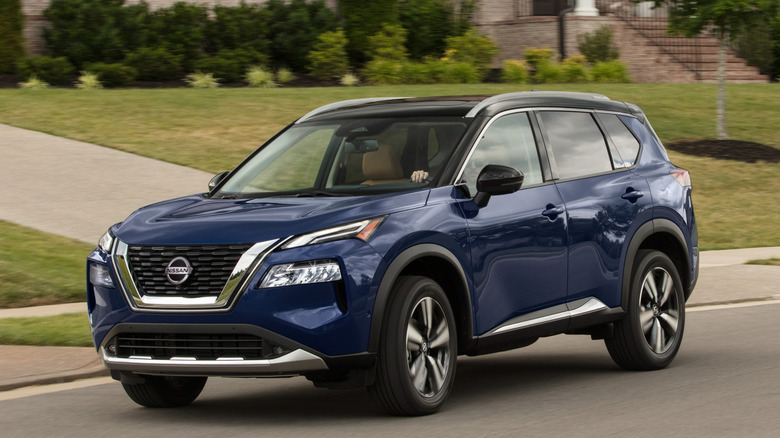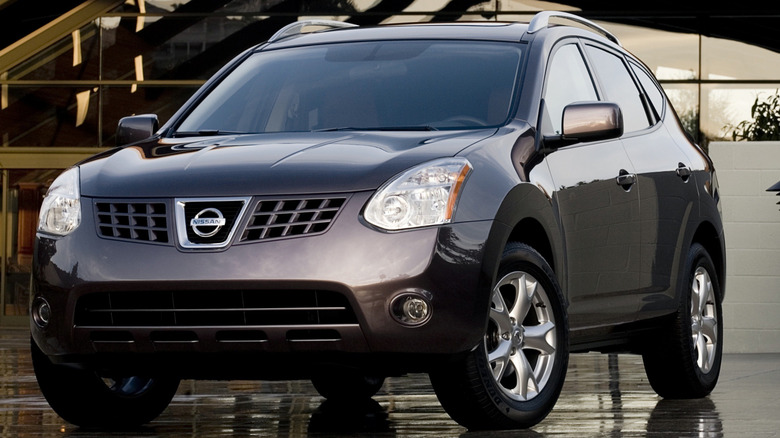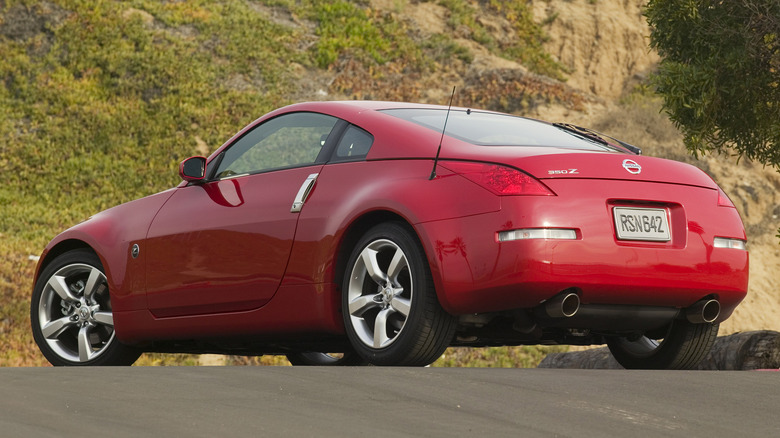Are Nissans Reliable After 100k Miles? Here's What Owners Are Saying
Nissan hasn't exactly been known for its reliability in recent years. Quite the opposite, in fact: Nissan's CVT was a complete disaster as far as reliability's concerned, developing several problems over the years and partially tarnishing the company's reputation. However, that only represents one microcosm of the broader reliability spectrum. In truth, many owners have vastly exceeded 100,000 miles on their Nissans, depending on the particular model and equipment. Some components fail more easily than others, like the infamous transmission, but surely there must be a magical formula for creating a reliable Nissan, right?
Well, according to owners, the answer's mixed depending on the era and individual experience. In terms of reliability, owners often praise classic Nissans from the 90s to early 2000s as something of a golden era, then it dips down. Now, it's on the rise again. It can be somewhat tricky to predict, considering a fair amount of six-figure-odometer Nissans are of these eras just due to age alone. So what is simple survivor bias (the unreliable cars already being scrapped) and what is genuine reliability in these older models?
As a quick disclaimer, we'll only be looking at Nissans up to around 25-ish years old. Anything beyond that means factors such as perishable items start wearing out; things like hoses, bushings, and so on. Ultimately what matters most in these cars are how well they're kept: Factors like rust, poor maintenance, and frequent engine abuse degrade reliability over time.
The bad points (many aren't actually that bad) for Nissan
Nissans from the late-2000s to mid-2010s tend to get mixed reviews. Some owners and experts have conflicting opinions concerning certain models like the Rogue or Sentra: Either they're fine for hundreds of thousands of miles, or the CVT is falling out. Generally it comes down more to diligent maintenance. The CVT problem child typically doesn't protest as much when owners reported frequent maintenance intervals and preventative measures like keeping the revs low to prevent overstressing. You can tell if a CVT's had it by the high-pitched wailing it makes, sometimes referred to as the "death whine."
Nissan engines, at least in recent years, also tend to be a mixed bag. Certain powerplants like the newer variable compression VC-Turbo engine have scathing reviews from customers, reviewers, and experts alike, owing to manufacturing defects that led to a massive recall totaling over 400,000 cars. Meanwhile, other engines such as the VQ engine family, are cited by experts and owners for impressive reliability, meaning it's often difficult as a potential buyer to truly know what you're getting from the odometer alone.
In short, probably the biggest downside of Nissan's reputation for reliability is just how all over the place it is. It frequently comes down to buying a car with the right combination of parts that's been treated well, as opposed to a more blanket statement to indicate what is and isn't reliable. However, in terms of what to avoid, it's generally advisable to take a long look at the CVTs and do your research regarding the engines, since the same car may present two completely different pictures depending on these factors.
The good points for Nissan
While there are some engines well-known for being unreliable, Nissan isn't a company with a reputation for unreliability in general, certainly not within its engines. A particular highlight is the venerable VQ family, in continuous service since 1994 and powering several famous Nissan models, with owners regularly reporting mileage levels deep into the six digits. More specialized engines, such as ones found in the GT-R, also have stood the test of time, with many owners showcasing high-mileage figures in the performance cars. Other VR engines also boast good reliability as well, such as the VR30.
Moreover, CVTs aside, the majority of powertrain options for Nissans retain a good reputation, with owners racking up hundreds of thousands of miles in manual transmission-equipped cars like the Sentra, and true automatics in trucks like the Pathfinder and Frontier. Moreover, the CVTs themselves tend to be hit or miss affairs, with many owners not experiencing any of the problems that seem to plague others.
Lastly, there's more good news in the electrics department; that is to say, there's not much news regarding these factors at all, nor with suspension and running gear. The company's electric cars, like the Leaf, also enjoy excellent reputations for quality and reliability, meaning the issues tend to center around the powertrains almost exclusively. As a potential buyer, it eliminates a great deal of variables since other factors like brakes, electronic components, and chassis haven't been mentioned in any reliability critique.


